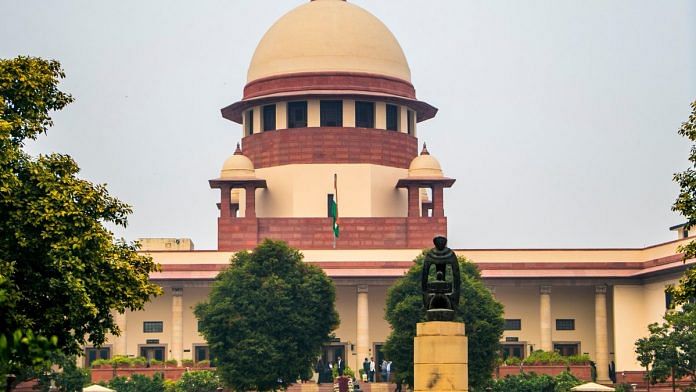New Delhi: The apex court “should not become an instrument to create havoc,” the Supreme Court observed Monday as it dismissed a public interest litigation (PIL) that sought to rename roads and places named after ‘foreign invaders’.
“A country cannot remain a prisoner of the past. India is wedded to the rule of law, secularism, constitutionalism, of which Article 14 stands out as guaranteeing both equality and fairness in state actions,” a bench of justices K.M. Joseph and B.V. Nagarathna told advocate Ashwini Upadhyay, who appeared as petitioner-in-person in the matter.
In its order, the bench further said it was important for India to move forward and that the “history of any nation cannot haunt the present and future generations …to the point that succeeding generations become prisoners of the past.”
Before detailing its reasons in the order, the court chided Upadhyay for filing such a petition. His primary contention was that despite 75 years of Independence, some areas and roads continued to be named after ‘invaders’, particularly those from the Muslim community — who he described as “barbarians” in his petition.
The lawyer argued that the ‘original’ names of such places should be restored in order to do away with the identity of the ‘invaders’. He cited his rights to culture and religion to press his case. It was his contention that these rights were protected through various provisions in the Constitution.
However, the bench disagreed and advised him not to create “more disharmony” in the country by making such prayers to the court. “We (courts) are secular and supposed to protect the Constitution. You are concerned about the past and dig it up to place its burden on the present generation. Each thing you do in this manner will create more disharmony,” Justice Joseph said.
Justice Nagarathna added, “I may vent out here. Hinduism is a way of life and because of that, India has assimilated everybody. Because of that, we are able to live together.”
She equated Upadhyay’s petition to the “divide and rule policy” followed by the British, which had “brought about schism in our society.” The judge warned against “bringing back” such aspects of colonial rule, saying “do not drag a religion into this”.
Also read: ‘Why we hear routine matters…,’ SC explains, 2 days after law minister pointed out backlog
‘Golden principle of fraternity’
Despite such strong observations, Upadhyay made an effort to convince the bench, providing examples of names of roads in Delhi that did not reflect Hindu icons.
Rejecting this plea as one that could push India back into a past replete with incidents of disharmony, the bench said, “The golden principle of fraternity is of the greatest importance and rightfully finds its place in the Preamble (of the Constitution). It means that harmony alone will lead to the togetherness of the country.”
Upadhyay’s request to be allowed to file a detailed note on his submissions was also turned down. As a “guardian of the Constitution,” the court said it would dismiss the petition and also refused to give the lawyer liberty to move a representation before any government authority.
It urged Upadhyay not to belittle “Hinduism – one of the greatest religions in terms of metaphysics” by filing such petitions.
“The world looks to us always. Even today, I am a Christian, but I can say that I am equally fond of Hinduism. I have tried to study it. Try and understand its greatness, do not use it for a particular purpose,” Justice Joseph told Upadhyay. He added that in Kerala, his home state, Hindus had donated their land for the construction of churches.
When Upadhyay complained that over the years Hindus had been ‘wiped out’ and reduced to a ‘minority’ in nine states, Justice Nagarathna interjected to say that Hinduism does not allow bigotry and that history cannot be rewritten.
When Upadhyay narrated past invastions, the judge said these were historical facts that could not be wished away. “Yes, we have been ruled by foreign invaders. We have been invaded several times and history has taken its part. What are you trying to achieve? Don’t we have other problems in our country?” she said.
Both judges asserted that “history cannot be rewritten to say that they (foreigners) did not invade India”.
(Edited by Smriti Sinha)
Also read: Central ministries biggest litigants in govt with 2.85 lakh pending cases, finance tops list



